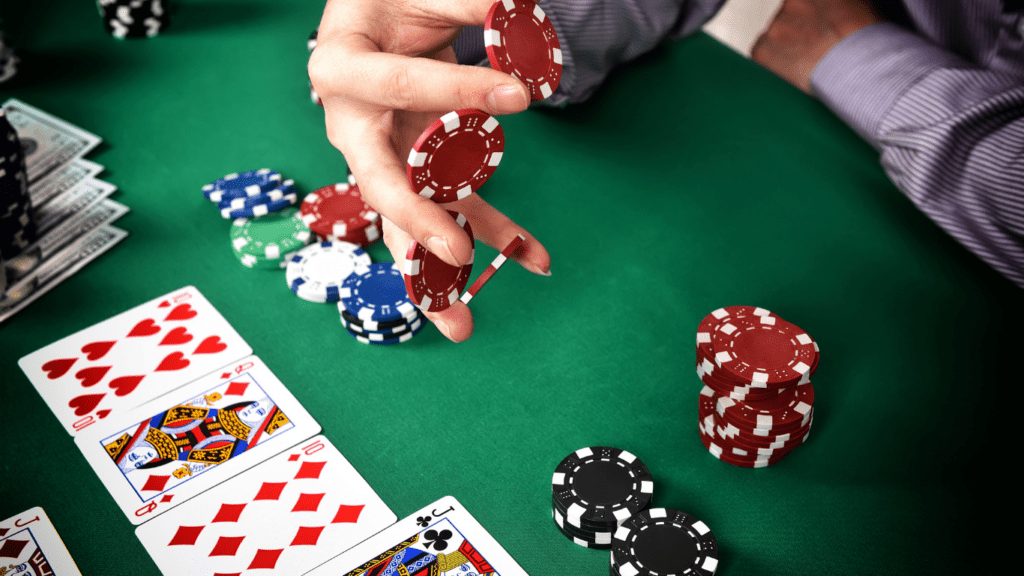Understanding Gambling As Entertainment
Gambling serves as a dynamic form of:
- entertainment
- blending excitement
- unpredictability
- social engagement
Its appeal lies in the combined rush of potential winnings and the immersive experience it provides.
The Thrill of the Game
The core of gambling entertainment is the thrill it generates. Fast-paced games like roulette and poker rely on anticipation and unpredictability, creating an adrenaline-charged environment. Slot machines heighten this excitement through sensory stimuli—bright lights, sounds, and animations that engage the player fully. This combination of suspense and instant gratification keeps individuals immersed in the gaming experience.
Social Aspects of Gambling
Gambling also encourages social connections, particularly in group settings like casinos. Games such as craps and poker foster interaction through shared stakes and collaborative decision-making. Online platforms integrate chat features and live dealers, enabling players to connect virtually across locations. Social bonds often amplify the entertainment value, making gambling a shared activity rather than a solitary pursuit.
The Role of Skill and Chance
Entertainment in gambling stems from the interplay between skill and chance. Games like blackjack allow players to employ strategies, giving a sense of control that enhances satisfaction. Conversely, chance-based games such as slots introduce pure unpredictability, appealing to those who enjoy luck-driven outcomes. Balancing these elements ensures that gambling caters to diverse preferences, adding depth to its entertainment appeal.
When Entertainment Becomes Exploitation

Gambling crosses the line when entertainment tactics deliberately manipulate players for profit. Recognizing these exploitative strategies helps in identifying the risks hidden beneath the surface.
Manipulative Marketing Tactics
Marketing in gambling often employs strategies designed to hook players. For example, welcome bonuses promise substantial rewards but are tied to complex wagering requirements. Exclusive promotions use fear of missing out (FOMO) to encourage impulsive spending. Ads portraying winners’ success stories create an illusion of attainable wealth, while failing to highlight the losses most players face. These tactics focus on creating false hope and reinforcing participation, often leading vulnerable individuals to spend beyond their means.
Psychological Triggers in Gambling
Many gambling platforms exploit psychological triggers to keep players engaged. Variable reward systems, such as random slot machine payouts, utilize unpredictability to stimulate dopamine release, making play addictive. Loss-chasing mechanisms, where players are encouraged to recover losses through repeated bets, exploit emotional vulnerability. Bright visuals, captivating sound effects, and celebratory animations are intentionally incorporated to make wins feel more rewarding than they realistically are. These triggers shape behavior, steering attention away from potential consequences.
The Impact of Addictive Design
- Addictive designs in gambling products maximize time and money spent on platforms. F
- Autoplay features on slots remove pauses between spins, reducing opportunities for decision-making.
- Mobile gambling apps use push notifications to lure inactive users back. Jackpot systems emphasize large but rare wins, encouraging extended play to achieve nearly impossible goals.
- Microtransactions and virtual tokens further obscure real-money losses, detaching players from the true financial stakes.
- These features are crafted to prioritize profits over the player’s well-being.
The Economic Consequences of Exploitation
Gambling exploitation creates far-reaching financial and social impacts. These consequences affect individuals and ripple out to communities and economies.
Financial Struggles for Individuals
Exploitation in gambling often leads individuals into severe financial distress. Problem gambling can foster debt accumulation through personal loans, credit cards, or borrowing from friends and family. In extreme cases, gamblers may liquidate assets to cover losses. For instance, studies have shown that 23% of problem gamblers in the U.S. face significant financial hardship, with many unable to meet basic needs like housing and utilities.
Income loss is another major issue. Many gamblers spend excessive time in casinos or on online platforms, neglecting jobs and losing productivity. Reduced earnings, combined with increasing debt, creates an unsustainable financial cycle that perpetuates emotional stress.
The Broader Social Costs
The societal impacts of gambling exploitation extend beyond individuals. Healthcare systems incur costs from treating gambling addiction, with expenses for therapy and mental health services reaching billions annually in countries like the U.S. and Australia. Employers also face losses due to decreased workplace productivity and higher absenteeism among affected employees.
Families often bear the brunt of social costs. Financial strain disrupts household stability, leading to increased divorce rates and family conflicts. Children in these families are at a heightened risk of neglect and socioeconomic disadvantages. Furthermore, rising problem gambling correlates with higher crime rates, as individuals may engage in theft or fraud to fund gambling habits, adding a burden to the justice system.
These intertwined consequences reveal how exploitation in gambling has profound economic and social implications, warranting greater preventive measures.


 Gamble Today Smart, founded by Michelles Choigillz, is a forward-thinking platform promoting informed and ethical gambling. It offers data-driven insights, explores the science of luck, and highlights tech trends like AI and blockchain to help users gamble responsibly. Located at 1759 Elk Rd Little, Tucson, AZ 85701, and reachable at +1 520-256-0810, it’s a trusted resource for smarter, strategic gambling.
Gamble Today Smart, founded by Michelles Choigillz, is a forward-thinking platform promoting informed and ethical gambling. It offers data-driven insights, explores the science of luck, and highlights tech trends like AI and blockchain to help users gamble responsibly. Located at 1759 Elk Rd Little, Tucson, AZ 85701, and reachable at +1 520-256-0810, it’s a trusted resource for smarter, strategic gambling.